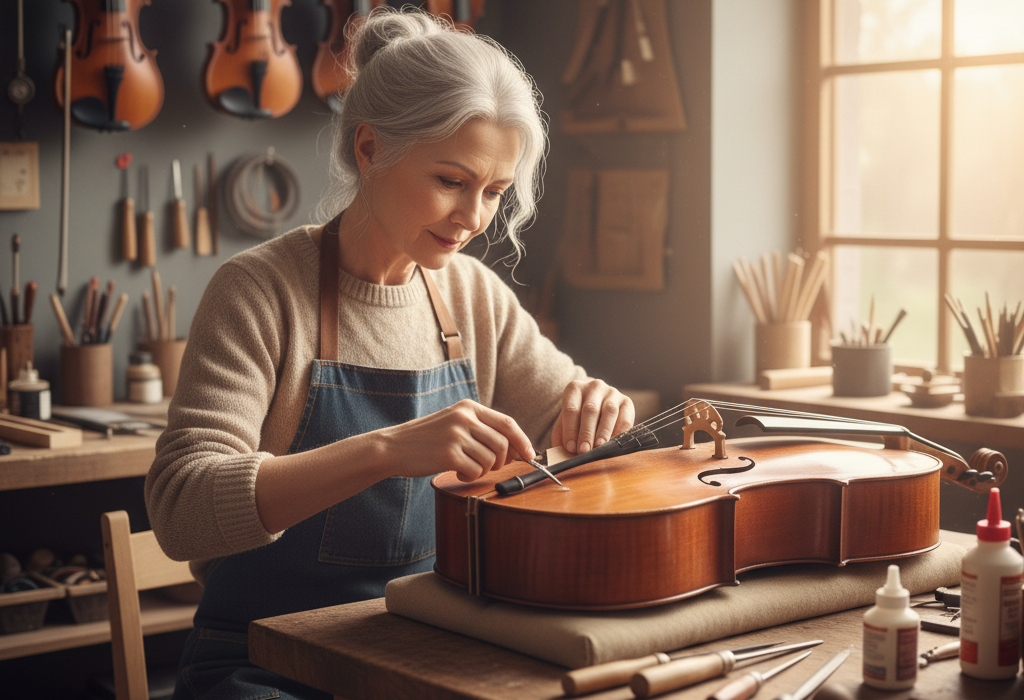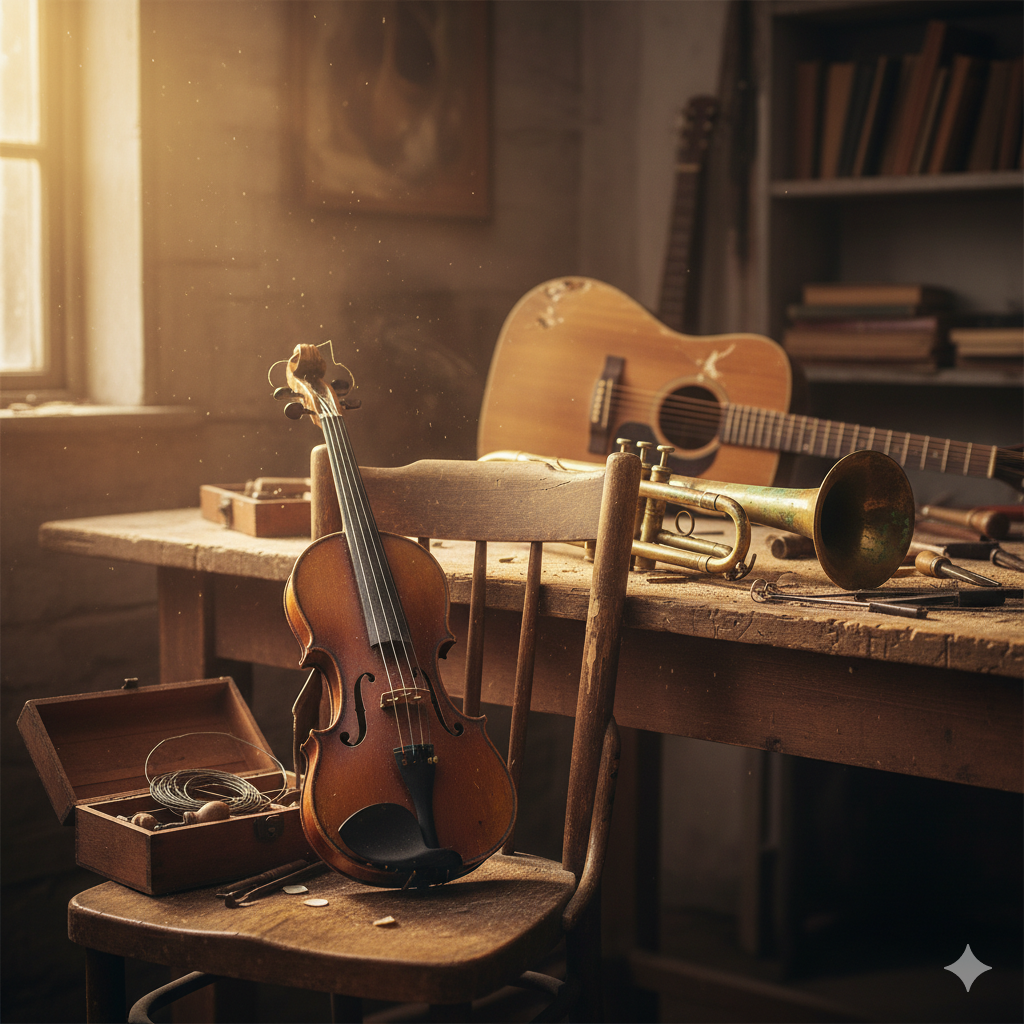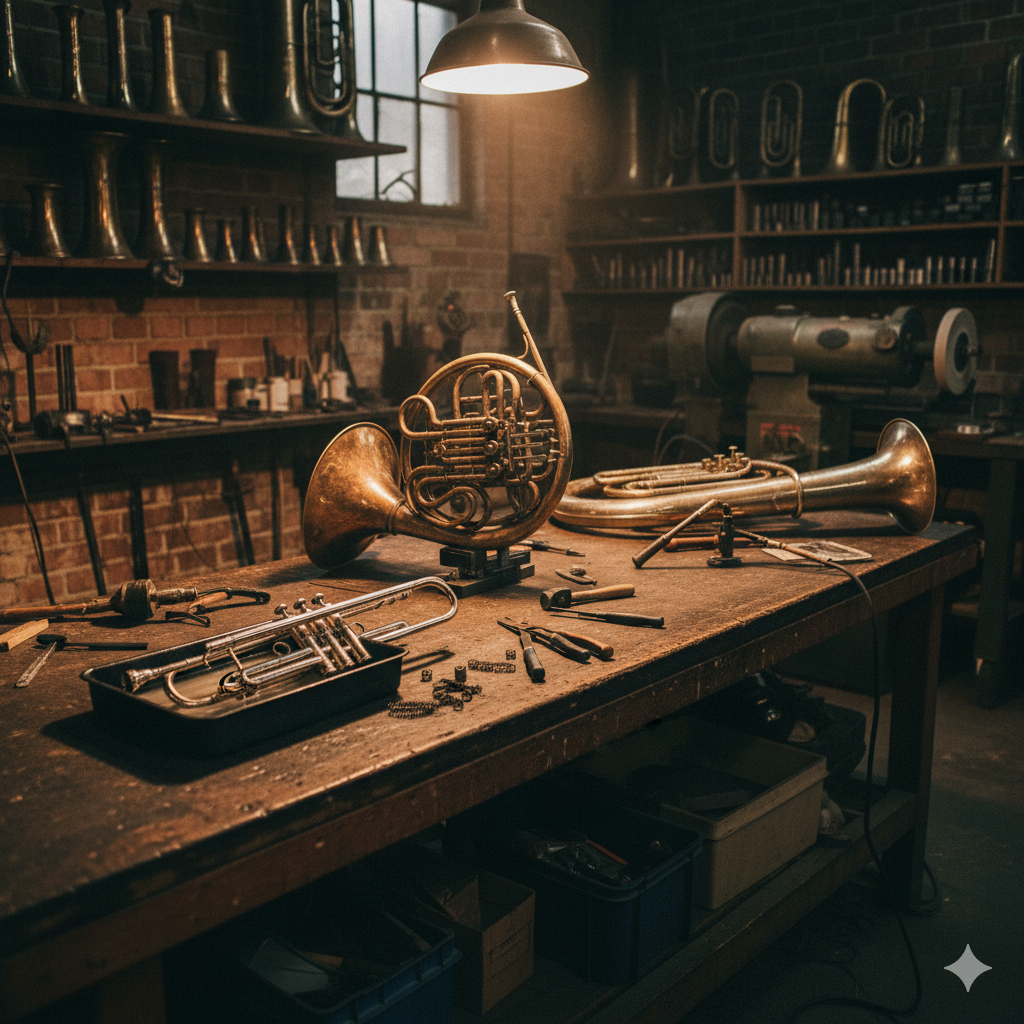
My passion for sustainability, is not just about travel and the environment, but extends to how we sustain culture, opportunity, and hope. We talk a lot about repurposing materials, giving items a second life, and challenging the ‘throwaway’ culture. But what about objects that offer something far more profound than just a reduction in landfill – objects that can literally change the trajectory of a young person’s life?
I’m talking about musical instruments.
In the UK, there are brilliant, dedicated schemes quietly working away, mending broken instruments, cleaning up those dusty relics from the back of the loft, and giving them to children who otherwise wouldn’t stand a chance of owning one. This isn’t just a heartwarming story; it’s a critical piece of the puzzle in tackling educational inequality and enriching our collective future.
The Quiet Crisis in Music Education
Before we celebrate the good work, it’s vital to acknowledge the context. For many families, especially those on low incomes, the cost of a musical instrument – let alone ongoing lessons – is a prohibitive barrier. As music education budgets in schools face relentless pressure, the chance for a child to pick up a violin, a trumpet, or a flute becomes a privilege, not a standard opportunity.
This is a profound loss. Learning an instrument isn’t just about reading sheet music; it fosters discipline, enhances cognitive function, builds self-esteem, and offers a vital channel for self-expression. For a child facing hardship, music can be a lifeline, a universal language, and a pathway to a wider, brighter world.
Mending and Matching: The Power of Repurposing
This is where the magic of these UK instrument-rehoming schemes comes in. They act as a vital bridge, taking two problems – unused instruments and financial barriers – and turning them into a single, beautiful solution.

One exceptional example is the Olympias Music Foundation in Manchester. Their program, aptly named The Recycled Orchestra, operates on the principle that “every year, thousands of musical instruments go to landfill due to the prohibitive cost of repair.” They actively partner with community luthiers (instrument makers) and technicians to breathe new life into donated violins, cellos, flutes, and more, ensuring they are used and enjoyed for years to come by children from low-income families in their community. This isn’t just a loan scheme; it’s a dedicated effort to turn landfill fodder into life-changing resources.

Another initiative working on a larger, systemic scale is the ReTune Project run by Normans Musical Instruments. This scheme focuses on working with regional Music Hubs run by the Arts Council, which often have old, unused instruments gathering dust in storage. Normans offers a free-of-charge collection, then thoroughly assesses the instruments. They champion the principle of ‘Reuse or Recycle’: instruments that can be repaired are fixed up and donated to partner organisations or sold to fund music education charities. Those beyond saving are responsibly recycled with a zero-landfill commitment. It is a fantastic example of a commercial entity creating a sustainable, closed-loop system that benefits both the environment and access to the arts.
These schemes, alongside others like The Melody Initiative and Music for All, embody true sustainability: repair, reuse, revitalise. They ensure the resources used to create that instrument continue to serve a purpose far more important than collecting dust.

Fuelling a Greener Future, One Story at a Time. Every small step we take – from reusable bags to conscious consumption – ripples outwards, creating a wave of hope. Let’s rewrite the story of our planet, one click at a time. I believe in the power of storytelling. By sharing inspiring environmental initiatives, unsung sustainability heroes and practical tips, I aim to amplify the voices making a difference. Imagine a world where everyone is empowered to take action, one small change at a time. ‘Buy Me A Coffee’ donation is a quick and easy way to offer a small, one-off donation, that helps keep this platform running and allows me to continue sharing these vital stories. Just click the “Donate” button (top right corner). Every contribution, no matter the size, makes a difference. Thank you for being a part of this journey.
More Than Just Wood and Brass
What these schemes achieve is far greater than instrument redistribution. They are:
- Challenging Inequality: They directly counter the notion that creative education should only be for those who can afford it. They are levelling the playing field, one perfectly tuned cello at a time.
- Fostering Community: Donors feel their instrument’s story continues, repairers use their specialised skills for a social good, and the children receiving them become part of a wider musical community.
- Environmental Action: Keeping perfectly good instruments, made often from rare woods and metals, out of landfill is a significant act of environmental responsibility.
I’ve always believed that being responsible to our planet means being responsible to each other. These quiet, unsung heroes – the repairers, the coordinators at Olympias, the logistics teams at ReTune, and the generous donors – are creating an incredible, sustainable cycle of creativity and hope. They prove that when we refuse to throw away things (or people’s potential), we build a richer, more harmonious world for everyone.
Tips on preventing old instruments ending up in a skip:
- Donate any unused instruments you have that you know you are not going to use – apparently wind instruments like bassoons and oboes are needed.
- Ask friends, family, neighbours if they have a forgotten violin or clarinet in their loft!
- If you are going to buy an instrument, there are ‘try before you buy’ schemes or rental options in many shops and generally buy the best you can afford as they are less likely to end up in landfill than a cheaper instrument.
- Think about how you dispose of an instrument and contact Music Hubs or organisations like Normans ReTune before you throw it away.
So, if you have an unused instrument gathering dust, why not search for a UK instrument donation scheme near you? You might not just be decluttering your home; you could be tuning up a child’s future. 🎻
